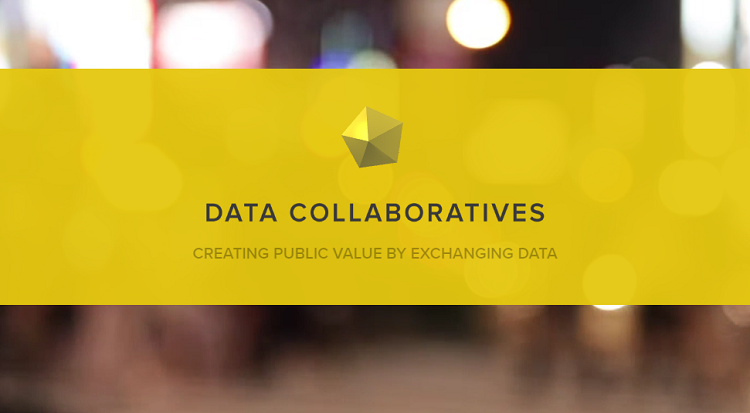
The importance of data to improve people’s live is self-evident. As public problems grow in complexity -from climate change to achieving the Sustainable Development Goals- and new forms of expertise and information are required, greater access to information, its treatment and re-use is increasingly needed. Nevertheless, much of the data needed to achieve the common good belongs to private sources. For this reason, it is imperative to accelerate the collaboration among members of the community - companies, public sector, academic institutions, among others - for a constant data exchange to solve current public problems.
In this context, The GovLab has launched Data Collaborative to maximize the data value, improve people's lives and create public value through the re-use of information.
The access to corporative data ensures a greater understanding and ability to track conditions on the ground during emerging situation and a more accurate modelling of public service design for citizens. This is the case of the mapping company Esri and the company Waze that use crowdsourced traffic information to help governments design better transportation. In addition, the data collaboration enables the knowledge transfer so the public sector can find more effective solutions to the social problems and evaluate the impact of their policies.
There are four types of data identified by Data Collaboratives during the data exchange. First, personal information actively and intentionally shared by an individual, entity or group for a specific reason. Then, information with potentially personally identifiable data that is passively collected by an entity prior to any use. Thirdly, data with no personally identifiable elements (for example movement of fishing vessels) and, lastly, information free from personally identifiable elements that is actively shared by an individual, entity or group for a specific reason.
The exchange of this information enables several types of data collaboratives among different sectors, including the creation of “data pools” with shared data resources belonging to public and private sources such as the project MDEEP; the organization of prizes and challenges that promote the development of innovative solutions whereas the corporate and academic sector create links with each other as in the case of the initiative T1D Data Exchange; the creation of tools, apps and technological products, as Clever, and even the establishment of agreements between the public sector and private entities to share data for their analyisis and enrich their value chain following the example of NetHope project.
In order to encourage the private sector to publish their data, Data Collaboratives identifies six direct benefits behind corporate information sharing. From the access to other data sources, a better company reputation, the revenue generation, the enhancing of competitiveness to comply with the corporate responsability.
However, these types of data collaboratives also carry certain risks in each of the phases of the data lifecycle -from the collection to the re-use- such as security flaws, weak scientific rigor in analysis or legal confusion or gaps.
To avoid those risks, Data Collaboratives suggests a working methodology that begins with the identification of the problem to be solved and the collaboration goals to, afterwards, select the accurate data providers and identify the specific incentives for them to participate. Subsequently, the type of data collaboration would be designed taking into account the potential risks (legal, ethical ...) while developing a strategy to mitigate these potential problems. Then, the functions, roles, responsabilities, timeline and operations needed in this data exhange are designed to create a communication and analysis strategy that assess the impact and progress achieved in the project.
Promoting data collaboratives and encouraging cooperation among the different actors is the first step towards the implementation of innovative and effective solutions that ensure the achievement of the common good. For this, in the case of Data Collaboratives, a global strategy has been developed, as shown in the following diagram, which includes each of the important aspects in this process in order to obtain the best use of the data.
